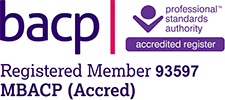Psychosis
What is psychosis?
Symptoms of psychosis include:
- hallucinations, where someone sees or hears things that others can’t see or hear (e.g., hearing voices). These can be extremely distressing and feel real to the person experiencing them
- delusions, where someone has beliefs which are not true (e.g., extreme paranoia that someone is hacking their phone)
- confused thinking and talking (e.g., speaking very fast and not making sense)

What is my experience with psychosis?
I have had a close family member experience psychosis. I understand how challenging, bewildering and scary this experience can be, not only to have your loved one suffering in such mental anguish but also having to navigate the mental health system and benefits system. It’s important to take care of yourself during times of crisis and stress. Finding support from others who understand your experience can lessen the isolation and promote acceptance.
What causes psychosis?
Triggers for psychosis include:
- severe depression
- stress
- traumatic life experience
- abusing drugs
- alcohol abuse
- dementia
- head injuries
- childbirth
How can counselling help?

Recovering from psychosis takes time but it is possible. There is hope. With the right medication and the right support, symptoms can be managed. Counselling can help with understanding the causes of psychosis and the impact on the brain. It can also help with self care, setting boundaries, managing stress and asking for help.
Receiving help for psychosis as early as possible is important as evidence has shown that treatment can be more effective in these circumstances.
If you are worried about a loved one, who is displaying symptoms of psychosis, take them to A and E, or to their GP or, if you are concerned for their safety and the risk is urgent, call an ambulance


